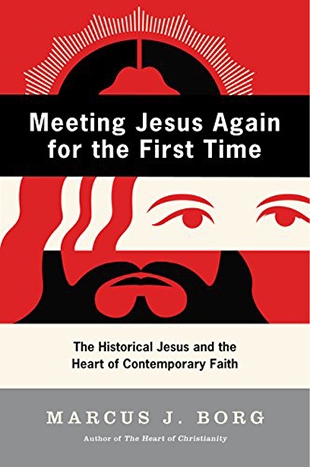Marcus J. Borg, Hundere Distinguished Professor of Religion at Oregon State University, challenges Christians to move beyond a fideistic image of Jesus as the divine savior and a moralistic image of Jesus as teacher. Instead he proclaims that Christian life is "ultimately not about believing or about being good." Rather, it is about "a relationship with God that involves us in a journey of transformation."
Borg, who was raised a Lutheran and is an influential leader of the group of Biblical scholars known as the Jesus Seminar, uses illustrative material from his own spiritual autobiography to show how an individual's faith can keep evolving. With four bold strokes, he describes his renewed vision of the the historical Jesus. He was a spirit person who saw himself as a mediator of the sacred. He was a subversive teacher of wisdom using parables and aphorisms to jolt individuals into a fresh awareness of God. He was a prophet who criticized the social elites of his day. And he was a movement founder "who invited his followers and hearers into a transforming relationship with the same Spirit that he himself knew."
These startling images of the pre-Easter Jesus have some profound implications for the life of the contemporary Christian church. Meeting Jesus as a spirit person should enable believers to easily share their experiences of God with spiritual seekers of other traditions. Borg's laser-sharp discussion of Jesus's understanding of compassion as "the central quality of God and the central moral quality of a life centered in God" opens the door for greater dialogue with Buddhists who have been especially attuned to this sacred dimension of life.
Borg also presents a lively assessment of what he calls the three macro-stories of Scripture — the Exodus story, the story of exile and return, and the priestly story. These were used by the early church to shed light on Jesus's ministry. They have ample fire power for our time as well. Borg suggests regarding them as a "pastoral 'tool kit,' each addressing a different dimension of the human condition."
The final image Borg dissects is seeing both the story of Jesus and the Christian life as a journey of transformation. There is no resting spot, only a relationship with God that becomes richer and fuller as one travels along life's pathways. Meeting Jesus Again for the First Time is a breath of fresh air in the musty halls of Christian scholarship. It offers salutary new options for discipleship and dialogue in this era of revved-up spirituality.
